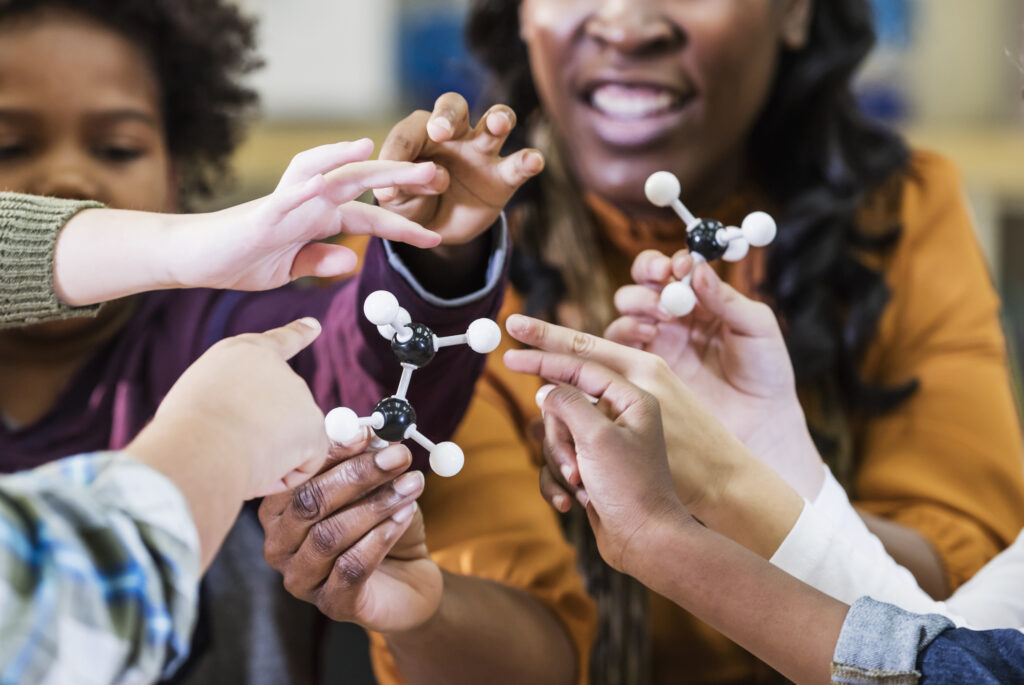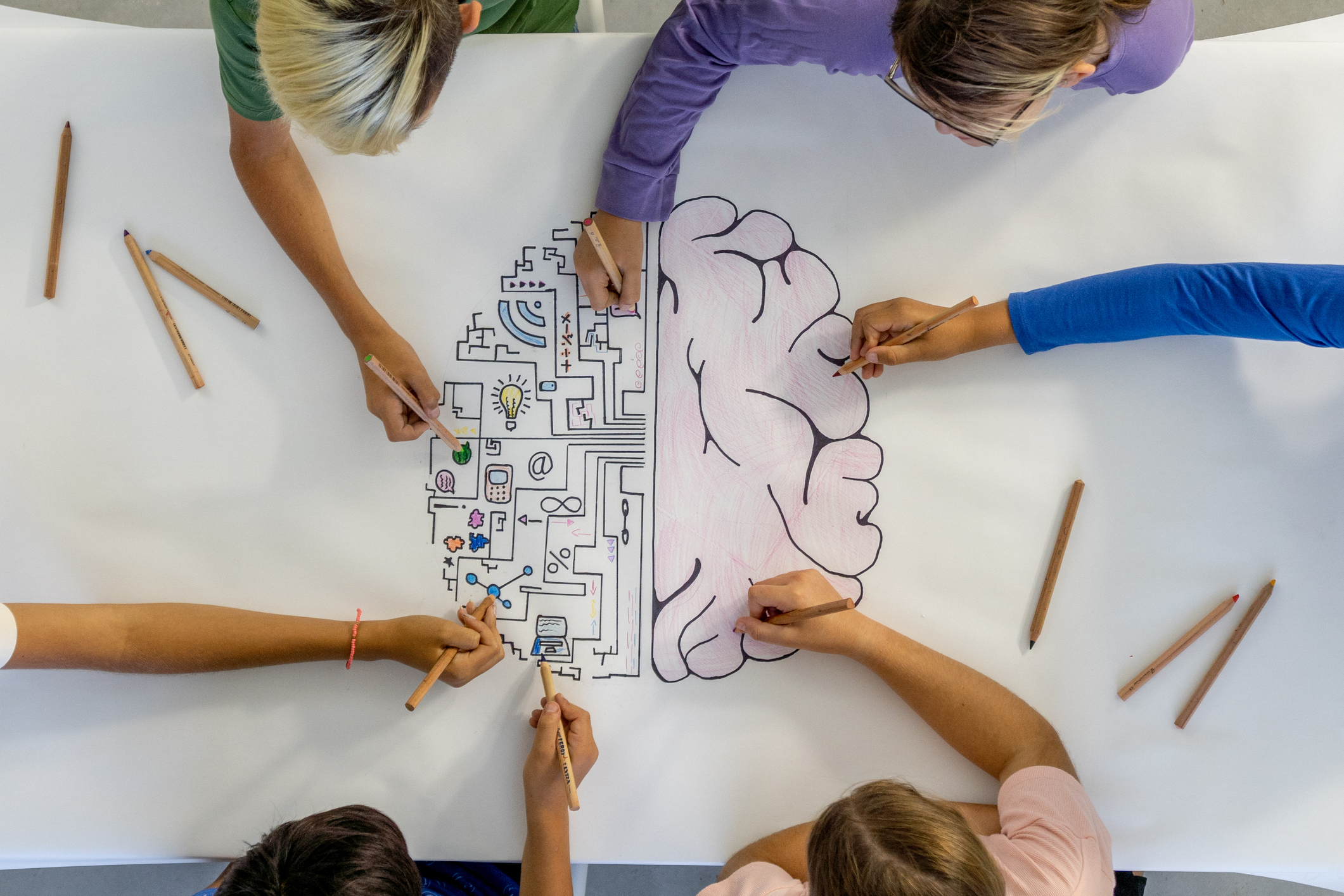Animal-assisted intervention is a therapeutic approach gaining traction across Nigeria for children with Neurodevelopmental disorders such as autism, attention-deficit/hyperactivity disorder (ADHD) and learning disabilities. Dogs, rabbits, aquarium fish and turtles are proving to be their complementary therapists Enhancing overall progress.
George Adinoyi (not his real name) sat motionless in his classroom at a known special needs center in the heart of Nigeria’s capital, Abuja. His teachers had tried every trick in the book to reach him — visual aids, hands-on activi- ties, songs, even gentle coaxing — but nothing seemed to break through the wall of silence that enveloped the young boy.
Diagnosed with autism, Adinoyi didn’t respond to an Individualized Education Plan (IEP) designed to motivate and guide him, until he encountered Tish.
Tish, a long-coat Chihuahua, padded into the school in late 2018, his tail wagging with a blend of curiosity and warmth. For the first time, Adinoyi’s face lit up. His hands reached out tentatively, and a faint smile tugged at his lips. The interaction transformed him. Soon, he began communicating — not just with Tish but also with his peers, teachers, and therapists. The breakthrough led his parents to welcome a dog into their home, further accel- erating his progress.
Adinoyi’s interaction with Tish formed part of Nigeria’s first animal-assisted intervention (AAI) trial run by Dogalov HumAn Support Initiative, a pioneering nonprofit, also based in Abuja.
Loading...
In sessions, Adinoyi and others are introduced to therapy dogs, usually calm and patient breeds like Tish and Bishop, a black Lhasa Apso. These dogs have been trained to respond to the specific needs of children who are neurodivergent. They help children engage in activities that may otherwise be challenging —whether it’s learning to give a command, practising social interactions, or simply sitting quietly with the dog and feeling the calming presence of an animal that doesn’t demand verbal communication.

AAI is based on the idea that animals can act as co-therapists, offering unique emotional, cognitive, and social benefits.
Research also corroborates that animals have an innate ability to provide comfort and break down barriers that traditional therapy may not be able to address. For many children, especially those with autism, connecting with other people can be overwhelming. But animals provide a non-judgmental and calm presence.
The genesis of AAI in Nigeria
For many years, therapy in the country has been synonymous with medications and, at best, traditional counseling sessions. The concept of bringing animals — particularly dogs — into clinical settings to support children with neurodevelopmental disorders was as foreign as the origins of the therapy itself, which traces its roots to the United States (U.S.) and Europe.
Sunday Agbonika, a Nigerian veterinary surgeon and dog trainer, founded Dogalov HumAn Support Initiative after losing his nephew, who had autism, in 2013.
“In 2015, I came across a video about Nathan Selove, a boy with autism in the U.S., paired with a service dog. The transformation in Nathan’s life was remarkable,” he recalls to FORBES AFRICA. “I thought, ‘what if I could have done something similar for my nephew?’ ”
From 2016, Agbonika sought ways to introduce AAI, but early attempts to reach children through their families failed due to societal taboos and lack of awareness.
The breakthrough came in 2018 when special needs centers like the Comprehensive Autism and related Disabilities Education and Training (CADET) Academy and Zamarr Institute opened their doors. For the first time, animals — dogs, rabbits, aquarium fish, and even a turtle — became partners in therapy sessions.
“The challenge in a sense still followed us in terms of the fact that
till date, we rarely have pictures or anything to show. Pictures and things we have to show are the ones that the centers that we work with provide. We normally have an agreement with them that we are not allowed to take shots, to take videos, to take anything when we come on site. We just run the interventions and then we leave. They take pictures, they post. Then, when they post, we have access to that,’’ says Agbonika.
The science of AAI
AAI is more than just a feel-good activity.
Studies have demonstrated that interactions with animals can lower levels of cortisol, the stress hormone, while increasing levels of oxytocin, often referred to as the ‘love hormone’, which promotes feelings of bonding and trust. These chemical changes in the brain can help children regulate their emotions, reduce anxiety, and improve their mood, making them more receptive to therapeutic interventions.
A report published in 2023 by the World Health Organization (WHO) and the United Nations Children’s Fund (UNICEF) estimated that, in 2019, 317 million children and young people were affected globally by health conditions contributing to a developmental disability. Autism, in particular, has seen a rise in diagnosis rates, leading to a greater demand for effective interventions.
Traditional therapy, such as speech or occupational therapy, remains crucial, but experts believe that complementary approaches like AAI can significantly enhance the overall progress of children who are neurodivergent.
In Nigeria, where resources for children with neurodevelopmental conditions are often limited, AAI offers a promising new approach.
For example, during a therapy session, Adinoyi is encouraged to lead Tish on a short walk, a simple activity that helps him practise communication and motor coordination. At first glance, it seems like a basic task, but for a child with autism, it represents a complex interaction — giving instructions, paying attention to the dog’s behavior, and responding accordingly. These small moments of success build confidence and help children develop the social and cognitive skills they need for everyday life.
“Animal-assisted services work in a number of ways. One of which is known as animal-assisted therapy involves delivering therapeutic intervention that is first of all planned, goal-oriented, and run by credentialed professionals who are licensed. What we have been able to do is animal-assisted activities which are unstructured interactions between the children and the animals. We reach out to the centers or they reach out to us and we agree to a date when we mobilize our animals there for the children to interact with them. We are now looking to transition to providing direct services,” Agbonika explains.
For some children, it’s dogs that work for them; for others, it might be aquarium fish. ‘’For example, a girl, I know, prefers anything in water. The key is finding what resonates with the child.”
Dotun Akande, founder of one of Nigeria’s pioneering autism centers, Patrick Speech and Languages Centre, in Lagos, shares a similar success story at Dogalov’s inaugural
Human-Animal Interactions Conference in 2021. Akande’s center was founded in 2006 after difficulties finding resources for her son with autism; she first experimented with rabbits, which failed to engage the children. But when they introduced goats, a child who had previously struggled to communicate, drew a picture of the animals— another breakthrough moment.
“We now use chickens to help children improve their communication skills while learning about the evolution and development of animals. With daily exposure to these animals, the children have shown significant improvement in their interactions.
“It’s one of the simplest ways to teach children and understand animal development. This approach should be adopted in all schools, not just special needs centers,” Akande shares with FORBES AFRICA.
According to Akande, this initiative has also inspired one adult to assist at her mother’s poultry farm, while another is seeking a part-time role at a veterinary clinic to gain more knowledge.
Challenges on the path to progress
The road to acceptance of animal-assisted therapy in Nigeria is as winding as the streets of the country. Despite the successes, Dogalov faces significant hurdles.
A devastating heatwave in Abuja recently claimed the lives of several of their therapy animals, including Bishop, a favorite dog at the special need centers they partner with. Rebuilding their animal cohort has been both costly and time-consuming. Funding is another persistent issue. While Dogalov received a small grant of N1 million ($600) from the ‘Friends of Prof’ initiative instituted to commemorate the then Nigeria’s Vice President Yemi Osinbajo birthday in 2021, much of its work relies on personal contributions. “We have spent over $15,000 thus far, with much of it being self-funded or con- tributions from family, friends or the Dogalov board of trustees. It has more or less been my own dogs that I have as a pet enthusiast…”
The bigger picture
For Agbonika and his team, AAI is more than a therapeutic tool — it’s a movement to reshape how Nigerian society views disabilities. Dogalov’s annual Human-Animal Interactions Conference, whose fourth edition was held virtually in August 2024, serves as a platform to educate stakeholders and build partnerships.
Agbonika is joined by Praise Akobo, a fellow veterinarian with her own unique connection to the cause. Living with “an invisible disability”, Akobo found solace in her work with animals. “I always believed animals could play a role in supporting people with disabilities,” she says. In 2022, she reached out via LinkedIn to Dogalov, where she now helps bridge the gap between veterinary medicine and human service professionals.
Akobo looks forward to the possibility of the first physical conference if they are able to attract the required funding for operations with a minimal estimation of $50,000 by Agbonika. The initiative is also exploring partnerships with corporate sponsors and international organizations to scale its efforts. For children like Adinoyi, these animals are more than companions — they’re lifelines to a world of unlimited possibilities.
Loading...
